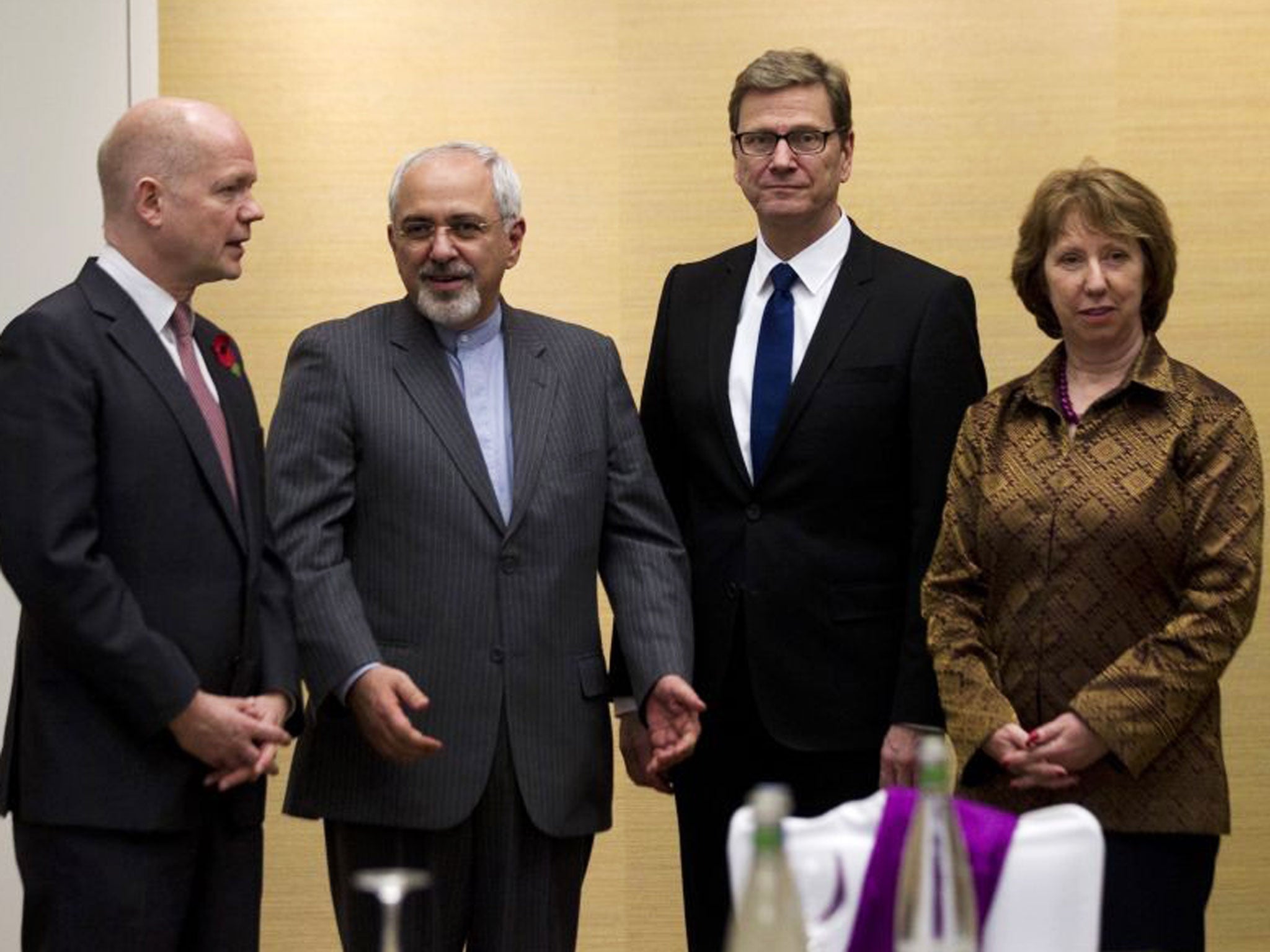Breakthrough still uncertain as Iran nuclear talks enter third day

A meeting of some of the world's most powerful politicians was still ongoing this afternoon, as Iran resisted calls to scale back its nuclear programme.
In a well-rehearsed disagreement, Western countries claim the Islamic Republic's uranium enrichment programme is a step towards nuclear weapons, while Iran insists it is purely for nuclear power.
The French foreign minister, Laurent Fabius, told French radio that Tehran is resisting demands that it suspend work on its plutonium-producing reactor and downgrade its stockpile of higher-enriched uranium to a level that cannot quickly be turned into the core of an atomic bomb.
The talks, now in their third day, have attracted foreign ministers from all of the UN Security Council's permanent members, as well as Germany and the EU.
Iran is represented by foreign minister Mohammad Javad Sharif, who has led his country's highest level contacts with the US since 1979.
In return for curbing their nuclear ambitions, negotiators have offered Iran a reduction in the economic sanctions which have so damaged the country's economy.
Iran currently runs more than 10,000 centrifuges that have created tons of fuel-grade material that can be further enriched to arm nuclear warheads. It also has nearly 440 pounds (200 kilograms) of higher-enriched uranium in a form that can be turned into weapons much more quickly. Experts say 550 pounds (250 kilograms) of that 20 per cent-enriched uranium are needed to produce a single warhead.
Fabius also said Iran is being asked to blend down "a great part of this stock at 20 per cent, to five per cent." Uranium enriched to five per cent is considered reactor fuel grade and upgrading it to weapons-level takes much longer than for 20 per cent enriched uranium. Fabius also suggested that the six powers were looking for an Iranian commitment to cap future enrichment at 5 per cent.
"We are hoping for a deal, but for the moment there are still issues that have not been resolved," he added.
US Secretary of State John Kerry has said some obstacles remained in the way of any agreement offering sanctions reductions for nuclear concessions.
The presence of his Russian counterpart Sergei Lavrov, and word that Chinese Deputy Foreign Minister Baodong Li also was headed to the talks, provided fresh hope for at least an interim deal. Such a deal would be breakthrough, after a decade of failed negotiations.
Israel remains strongly critical of any deal that even slightly lifts sanctions unless Iran is totally stripped of technology that can make nuclear arms. The country's Prime Minister Benjamin Netanyahu insisted any agreement in the making was a "bad deal" that gave Iran a pass by offering to lift sanctions for cosmetic concessions.
Asked about Netanyahu's criticism, White House spokesman Josh Earnest said "any critique of the deal is premature" because an agreement has not been reached.
Join our commenting forum
Join thought-provoking conversations, follow other Independent readers and see their replies
Comments
Bookmark popover
Removed from bookmarks